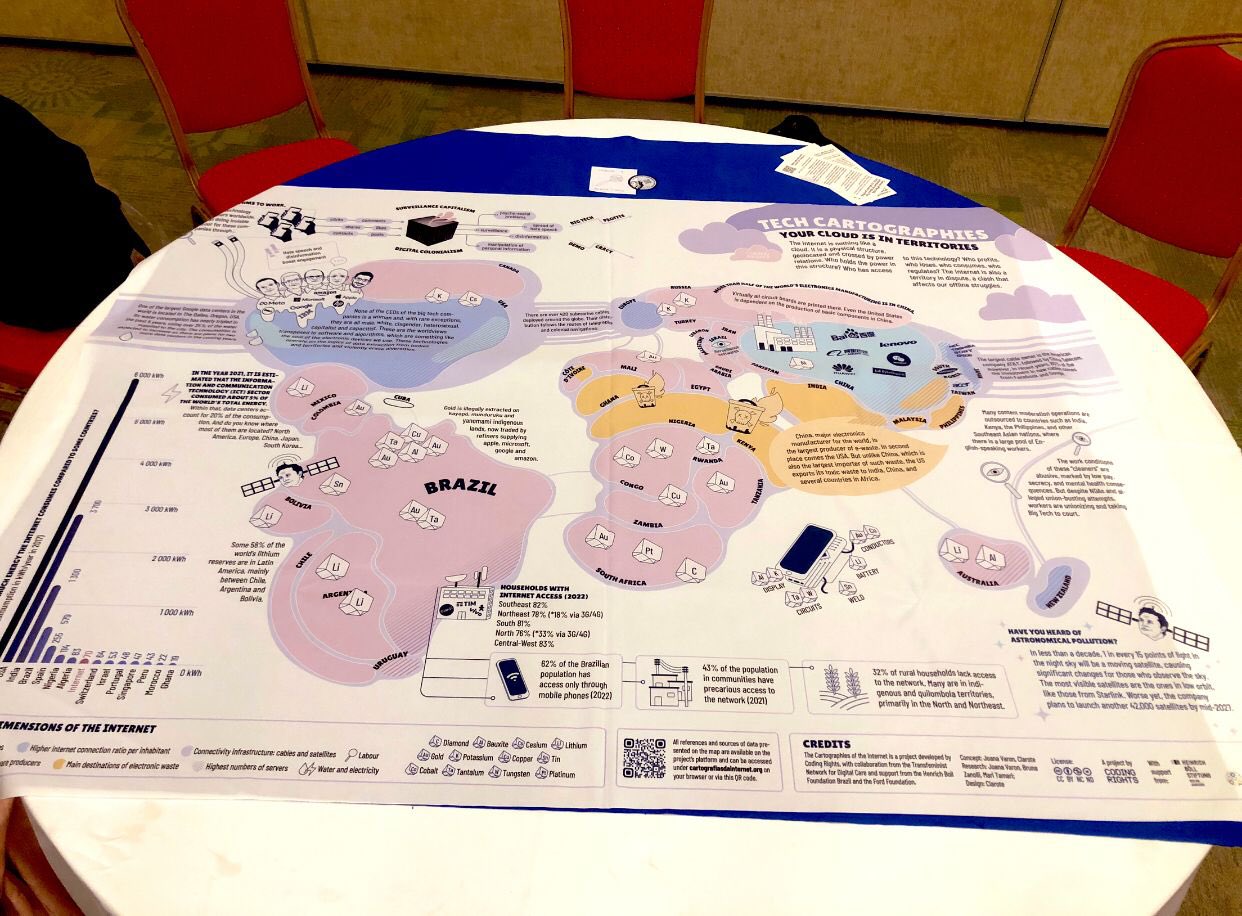Long Live the Jungle!
[En castellano] A 5-minute intervention by Paz Peña at the beginning of the workshop “Tech Cartographies: fighting digital colonialism and seeking social environmental justice”, organized by Coding Rights in the context of RightsCon in Costa Rica.

The map developed by Coding Rights clearly shows the material basis of digital technologies and how this material base has a differentiated power dynamic between North and South, but also between East and West. And the map makes more visible the global chain of production of digital technologies that, as in all capitalism, displaces the socio-environmental effects to the most marginalized populations.
But I would also like to reflect on something crucial for any analysis of digitalization in the 21st century: the climate and ecological crisis we are experiencing, but in its geopolitical sense.
Economic hegemony in the 21st century is being defined on two closely related fronts: who dominates the generation of green energy and who dominates the generation of cutting-edge digital technologies. This is the great economic fight of the 21st century between the United States, China, and the European Union.
And they are related because both green energy and digital technologies share the need for the same minerals, to such an extent that both transitions have produced a mining boom that has boosted the demand for all the periodic table elements, such as lithium, copper, cobalt, rare earth elements, etc.
And when there is a mining boom, there will always be various crises regarding human rights and social justice, basically due to the fact that there is no such thing as “sustainable mining.” Mining has enormous costs on biodiversity, indigenous cultures, and people's health. In addition, the mining boom pushes new mining projects to be developed regardless of the socio-environmental costs. It also encourages illegal mining, which means atrocities such as child labor, displacement, and extermination of indigenous populations.
In this context, the European Commission pushes approaches such as the “Twin Transitions,” in which it is proposed that in order to have an energy transition, it is also necessary to have a digital transition. So, to meet the climate goals of the Global North, everything must be digital.
But “Twin Transitions” concept is not supported by scientific consensus. Moreover, it is admittedly a geopolitical approach that helps the European Union not only to have a “politically correct” proposition to look for new mineral supplier countries but also helps Europeans to dispute new markets because, thanks to the idea that the way to becoming “green” is that all the planet must be digital, now techno-capitalism can have a robust health in the middle of the most critical crisis that we ever faced.
This is where I invite you to reflect, in the midst of the Sixth Extinction, on what it will mean for our lives in the 21st century if the powerful players of techno-capitalism continue to conquer new markets and become critical players now in the political context of climate and ecological crisis.
To end my intervention, I want to suggest Coding Rights include in this map a quote that the Spaniard, Josep Borrell, High Representative of the European Union for Foreign Affairs and Security Policy, said last year: “Europe is a garden,” while “the rest of the world [...] is a jungle, and the jungle could invade the garden”.
And let me tell you, dear Josep Borrell, amid the climate and ecological crisis, long live the jungle!
